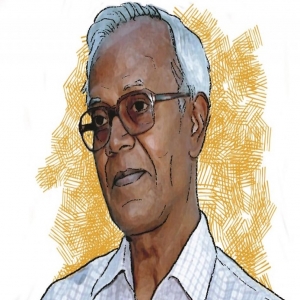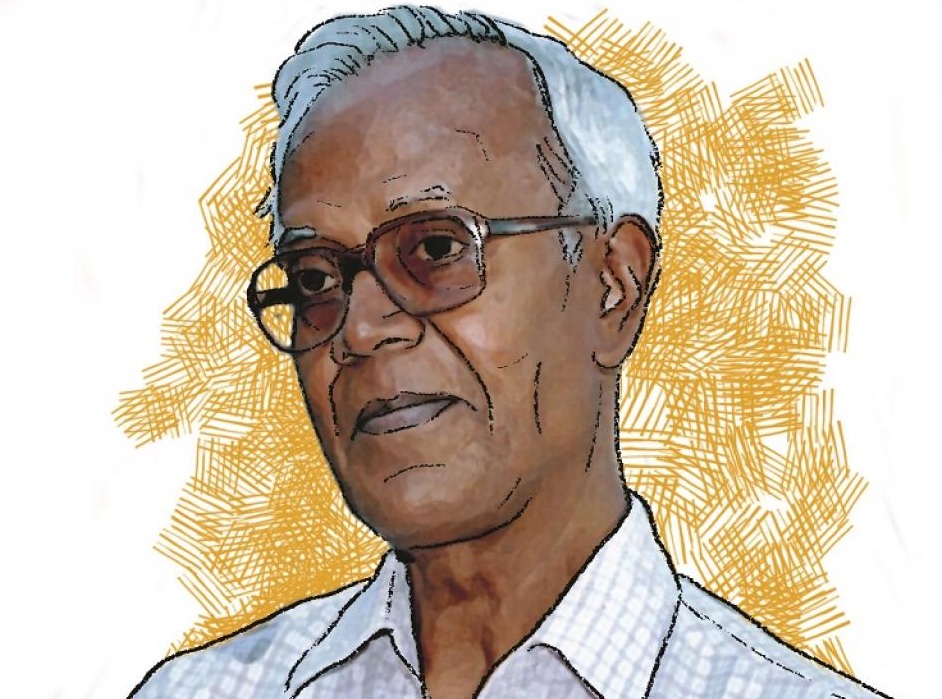
.jpg) Arockia Rayappan
Arockia Rayappan

I have been reading many media write-ups for some time about a probable state visit by the Pope of the Catholic Church to India with the due endorsement of the honourable Prime Minister of India. The media, both print and online, including social networking websites, highlighted a possible papal visit to India. I had to smile each time I read about it.
Some leaders, religious and secular, were so enthusiastic about it that they paraded it before the Christian religious minorities before the parliamentary election of 2024; there were even reports in the media that there have been clandestine visits to the Christian religious heads by a governor from North India belonging to the ruling regime promising them that it would be possible for the Pope to visit India if the BJP would come to power for the third time at the centre.
Even during his infamous G7 visit to Italy (except for the photo-op), when our prime minister was only a mute guest, he allegedly invited Pope Francis. Again, both the secular and religious media had a field day. Amidst this scenario, I ask: At what cost will a possible Papal Visit to India be?
Again, I honestly ask: Who needs the Papal Visit? At what cost? Who would be the beneficiaries of the impending Papal Visit? Are there leaders, both religious and secular, irrespective of religious affiliation, waiting to take advantage of the political instability that stares at the present regime in India? Are there churchmen out there having a gaze at wearing red hats – sure signs of hierarchical ascendency and promotion? Are we moved by the spirit of Prophet Nathan, who called a spade a spade, even confronting King David face to face without fear?
Basing ourselves on the ecclesiology of the Second Vatican Council and of Bernard Lonergan, one of the greatest theologians, philosophers, methodologists, ethicists and economists of the 20th century - who, in his book Method in Theology considers the Church as a process of the self-constitution within the worldwide human society, shall we explore honestly in an unbiased manner the eventual outcome of the Papal Visit?
I am unsure if my Canadian acculturation taught me to respond as the Canadian kids would like when they do not wish to reveal the truth or facts with their famous, 'I don't know!' The parents and guardians just accept the answer, which does not offer a substantial answer to the question asked.
To drive home the message, I briefly present two incidents from my life. A professor of either Christology or Missiology at Jnana Deepa, Pune, asked the students of Theology (I was present in the classroom in person during my bachelor's in Theology) to their total dismay: "What is the difference between celebration of the Holy Eucharist by an ordinary priest like him and by the Pope? In essence, the Eucharist is the same. But in a lived reality, will it be the same?"
The second incident occurred when I was the associate pastor at the Church of the Immaculate Conception in Kanhei Parish (Gurugram), belonging to the Delhi Archdiocese. This was my first pastoral assignment after my initial years of ministry as vice-rector and formator in Vinay Gurukul, Delhi Archdiocesan Minor Seminary. The parish then was full of life. By God's grace, it was blessed by the pastoral efforts of the late Father Lourdhusamy, who had built it as a family of parishioners. A wealthy and generous parishioner wished to sponsor me on a trip to the Holy Land more than two times. I gently declined the offer, saying she could offer it to any other priest willing to receive her generous gesture. I still remember telling the person that I would prefer to pray daily in front of Jesus in the Blessed Sacrament rather than travel all the way to the Holy Land.
I responded that way because of my formative years under the mentorship of Jesuit formators and professors steeped in Ignatian discernment. Even today, I do not regret my gentle "no" to the offer of a trip to the Holy Land.
It is time to ask some hard questions ourselves: Shall we rise above getting fascinated and entertaining the idea of a Papal Visit and Sainthood for Stan Swamy – victim of judicial and custodial (institutional) murder? Or shall we invest our precious time on something more needed for the Church to do in India rather than going after vain and pious glory?
Instead of campaigning for sainthood to Stan Swamy, can I/we start living the values and standing for the causes that are dear to Stan Swamy, whose life was a sheer imitation of his master and Lord Jesus Christ, Crucified and Resurrected Lord, who comes still alive in the presence of the poor apart from whom we do not have salvation?
This article offers before the readers the prophetic witness of Moses, Prophet Jeremiah, Saint John the Baptist – Prophet in the New Testament, Saint Paul of the New Testament, and the 20th-century prophet Oscar Romero of El Salvador, and of course our Indian prophet Stan Swamy, as a daily choice to opt for and as a lifestyle worth adopting.
Today the Church in India needs much more than a Papal Visit or sainthood for Stan Swamy. Yes, it needs Stan Swamy's undying and relentless spirit of dissent rooted in the pages of the Gospels and Pope Francis' powerful proclamation of the Gospel accompanied by his life witness.